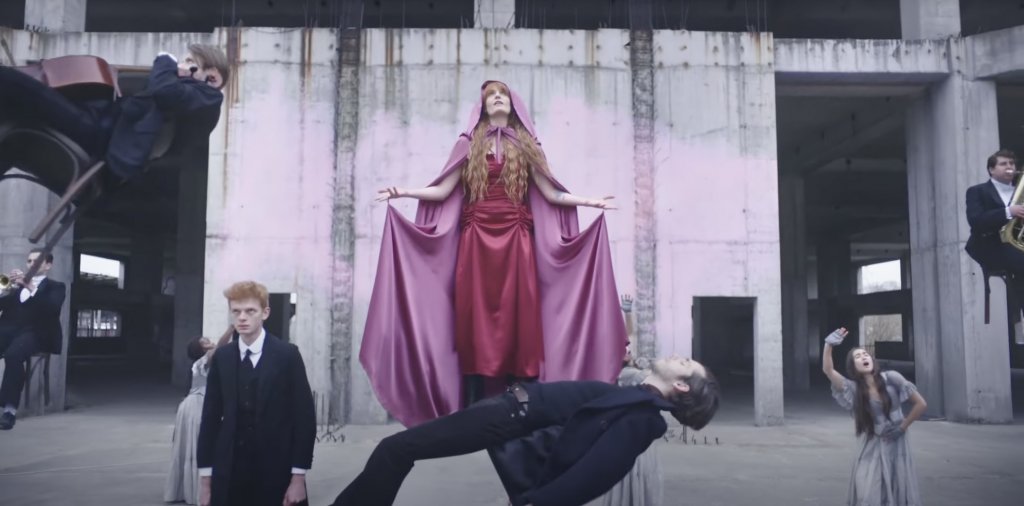Florence + The Machine is back with the 5th album of originals, Dance Fever, released today, March 13, by Polydor/Universal Music.
With three breakthrough singles, “King“, “Heaven is Here” and “Free“, Dance Fever is the successor to High as Hope (2018) and the group’s first album in 4 years. Described as “a fairy tale in 14 songs” by Florence Welch, the album was produced by herself in partnership with Jack Antonoff and Dave Bayley. Inspired by choreomania, “a Renaissance phenomenon in which groups of people danced wildly until they reached the point of exhaustion, collapse and death,” Welch’s new work invokes everything she (and so did we) missed during the lockdown: nightclubs, dancing at festivals, being at the centre of the whirlwind of the movement and being among ours.
The pandemic is also a constant in the songs of Dance Fever. Welch sings about friends getting sick, the joy and futility of the mundane, about anxiety and liberation, where he also found inspiration in folk, dance, the albums of Iggy Pop of the 70s, Nick Cave, Emmylou Harris, or folk horror films like “The Wicker Man“, “The Witch” and “Midsommar“.

“King”, the opening song and the first single from the album explores the discrepancies between men and women during motherhood: “Being an artist and wanting to have a family may not be as simple for me as it is for male artists. I formatted myself almost exclusively by male artists and, for the first time, I felt a wall fall between me and my idols, for I have to make decisions that they have not made.”
Dance Fever may well be the group’s most ecstatic work so far. Just get “Free” to play to understand the exaltation of welch’s sense of freedom after getting rid of the anxiety (portrayed by actor Bill Nighy) that controls it. “But I hear the music, I feel the beat, And for a moment, when I’m dancing, I am free,” she sings. In “Choreomania”, she uses dance as catharsis in an allusion to the “dancing plagues” that swept Europe during the Renaissance and inspired the album.
While “Heaven Is Here” is an explosion of Celtic folk hedonism, it is in “My Love” that we find the will to dance, even though we have at the heart of the skin the feeling of emptiness of mid-year 2020: “There is nothing to describe/Except the moon still bright against the worrying sky,” adding “All my friends are getting ill.” If the pandemic has brought us so many engendering feelings, it is in a cry of revolt that Welch demands to know “where to put my love”. It is in these questions for which she seeks an answer throughout the album that Florence Welch nurtests her ability to make it through.
On July 7, Florence + The Machine takes the NOS Stage in the 14th edition of NOS Alive for a long-awaited return to Passeio Marítimo de Algés. Tickets are available here.


